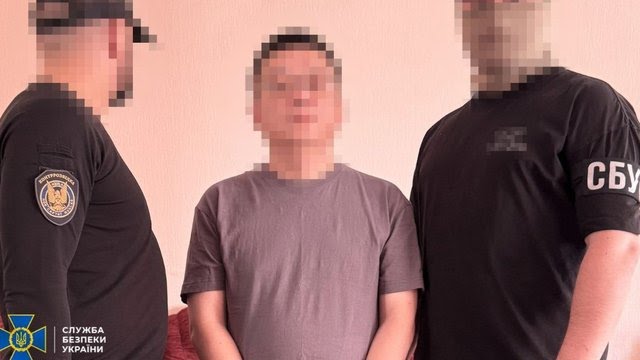Ukraine’s Security Service (SBU) has detained two Chinese nationals in Kyiv on charges of attempting to illegally acquire classified documentation related to the RK-360MC Neptune missile system — a key component of Ukraine’s modern coastal defense arsenal.
According to the SBU’s counterintelligence division, the suspects were apprehended following a weeks-long surveillance operation. Authorities allege that the individuals were gathering technical documents and seeking to smuggle them to China via diplomatic channels or commercial networks.
“This is a clear and deliberate attempt by foreign agents to gain access to critical Ukrainian defense technologies,” an SBU spokesperson said. “We view this not only as an attack on Ukraine’s sovereignty but also on international norms regarding military intelligence.”
Importance of the Neptune missile system
Military analysts suggest China’s interest in the RK-360MC Neptune system stems from its battlefield-proven effectiveness and unique domestic origin. The Neptune is a Ukrainian-designed and -produced subsonic cruise missile with a range of over 300 kilometers, modeled loosely on the Soviet Kh-35 but extensively modernized with indigenous Ukrainian technology.
Developed by Ukraine’s Luch Design Bureau, the RK-360MC Neptune system has gained global attention for its effectiveness, particularly after its reported role in the 2022 sinking of Russia’s Black Sea flagship, the Moskva. Its relevance has only grown in Ukraine’s continued efforts to modernize its coastal defense against further military aggression.
“The Neptune demonstrated its value in 2022 by reportedly striking and sinking the Moskva, the flagship of Russia’s Black Sea Fleet,” said Oleh Mykhailenko, a Ukrainian defense analyst. “That put it on the global map. For a country like China, which has vast naval ambitions and faces pressure in the South China Sea, the Neptune’s design and cost-effectiveness would be of enormous interest.”
The missile system’s radar guidance, electronic warfare resistance, and modular deployment make it attractive to nations looking to replicate or adapt such capabilities — either for use or defense against similar weapons.
Chinese spies Attempt to steal documents
The investigation established that one of the Chinese spies is a 24-year-old former student of a Kyiv technical university. He remained in Kyiv after being expelled in 2023.
“According to the case materials, the former Chinese student was supposed to obtain technical documentation on the production of Ukrainian Neptune missiles. To do this, he tried to recruit a Ukrainian citizen who is involved in the development of the latest weapons of the Defense Forces,” the report states.
The SBU counterintelligence exposed the spy at the initial stage of his intelligence activity and detained him while he was handing over secret documents.
The next stage was the detention of his father, who was supposed to pass on secret information to the special services of the PRC.
During the searches, phones with evidence of their correspondence with each other, where they coordinate their espionage activities, were seized from both suspects.
Based on the evidence collected, the Security Service investigators informed the detainees of suspicion under Part 1 of Article 114 of the Criminal Code of Ukraine (espionage). The suspects face up to 15 years in prison with confiscation of property.
The SBU confirmed that the suspects attempted to use diplomatic and commercial cover to facilitate their activities. The case is being treated as a serious breach of national security and an attempted act of foreign espionage.
Global Response
In an official statement released by the Chinese Embassy in Kyiv, Beijing denied any involvement in the alleged espionage plot. The embassy called for the “immediate clarification of facts” and expressed concern over what it called “a politically motivated accusation that may harm bilateral relations.”
Chinese state media outlets have so far echoed the denial, labeling the accusations as part of a “broader Western agenda to discredit China’s global standing.”
Western intelligence officials and defense analysts have voiced strong support for Ukraine’s swift counterintelligence action. A spokesperson for NATO’s Defense and Security Committee told reporters in Brussels that the incident “aligns with long-standing concerns about the Chinese government’s strategy of acquiring foreign military technology through covert means.”
The U.S. State Department issued a brief statement praising Ukraine’s vigilance and warning against “increasingly aggressive Chinese intelligence operations in conflict zones.”
British Defense Minister Alicia Graves also weighed in, stating: “This is a serious reminder that military technologies developed during wartime are immediate targets for adversarial powers — not just Russia, but also strategic competitors like China.”
The attempted theft of the Neptune documentation fits a broader pattern of global concern about Chinese industrial and military espionage. From U.S. fighter jet blueprints to European aerospace innovations, China has been repeatedly accused of using cyber operations and human intelligence assets to access critical technology.
Ukraine, now seen as a high-tech defense incubator due to wartime innovation, has become a new focal point in this arena.
For now the detained individuals are being held under Ukraine’s national security statutes and could face charges of espionage, illegal export of military technology, and conspiracy against the state. Ukrainian authorities say the investigation is ongoing and could implicate broader foreign intelligence networks operating in Eastern Europe.
For Ukraine, the incident underscores the global stakes of its defense development programs. For the West, it’s another chapter in the long-running technological Cold War with its rivals.







